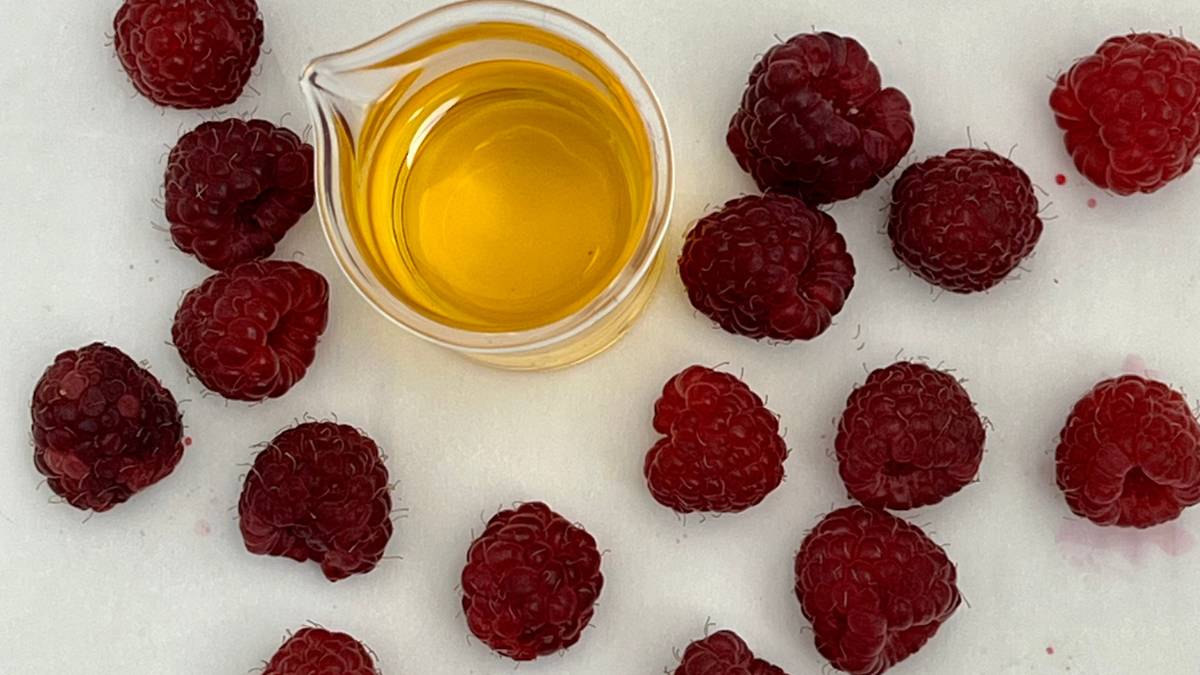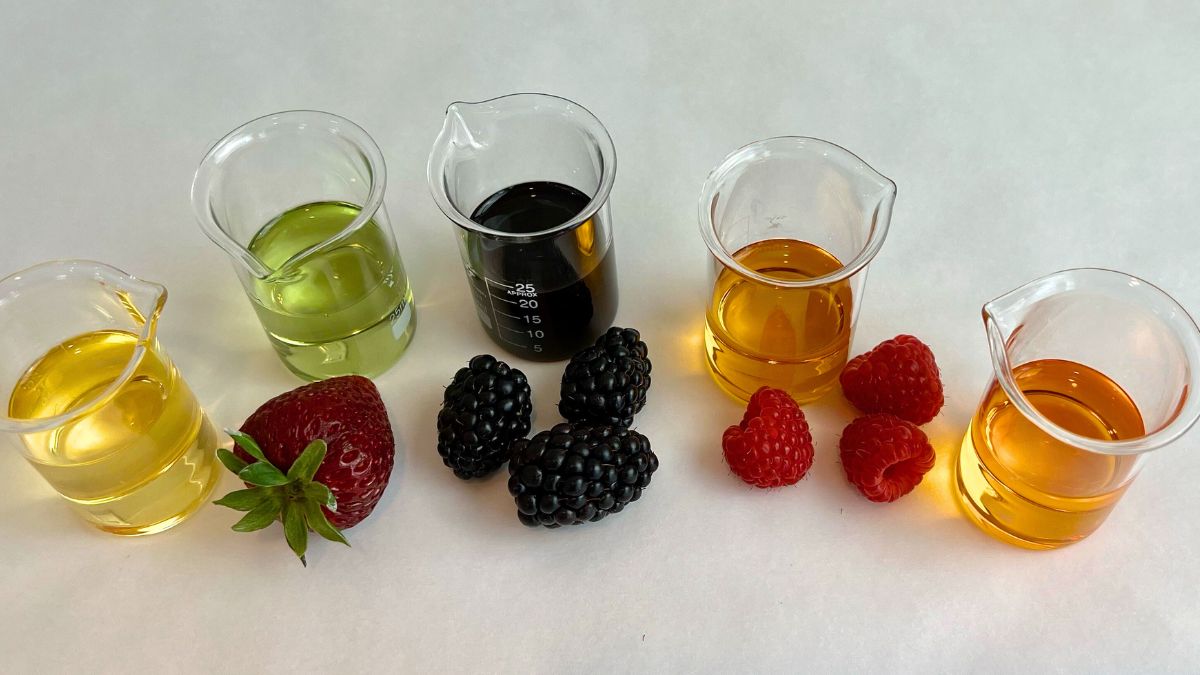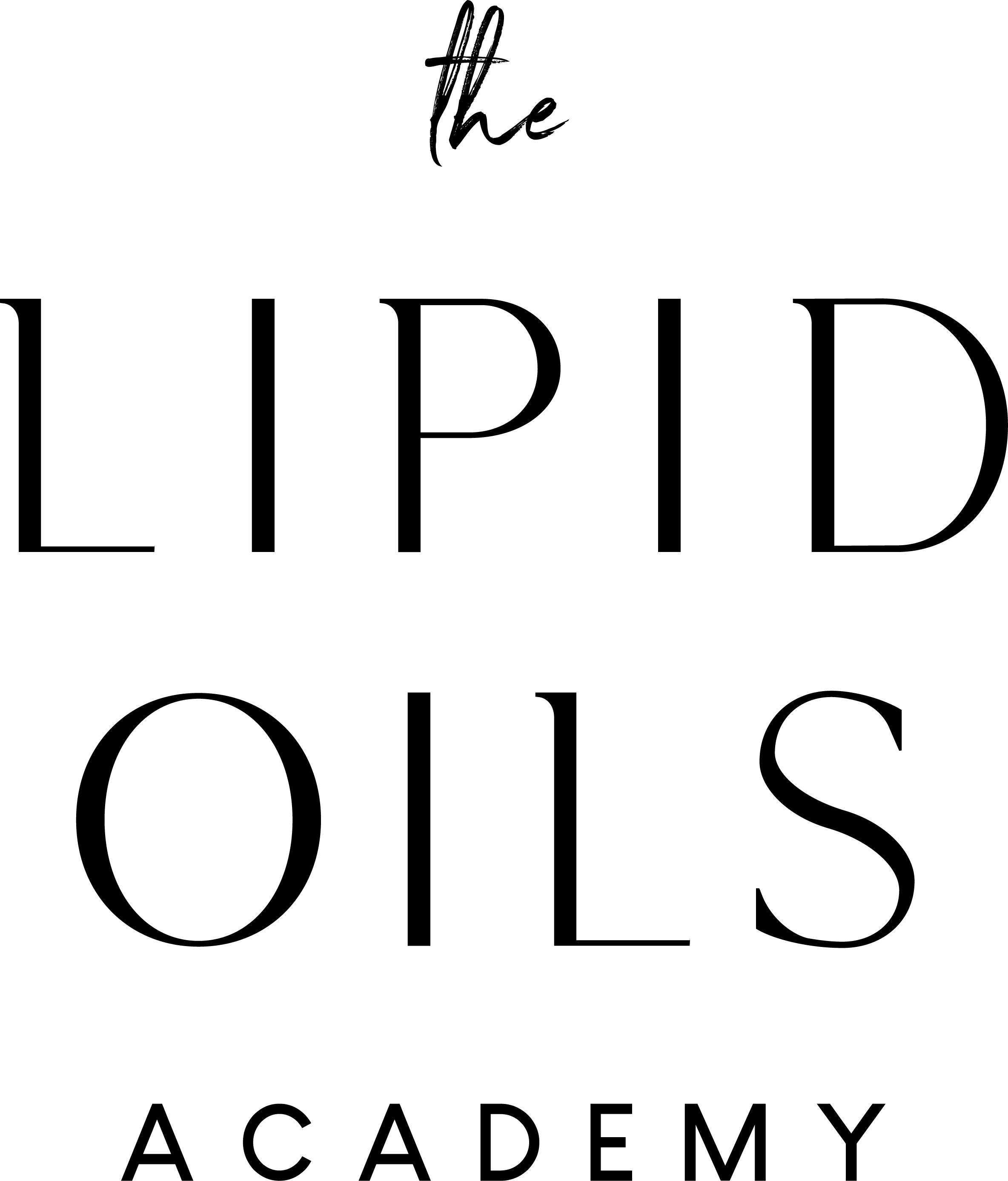Raspberry seed oil is another of the rose family shrub oils, closely related to rosehip, blackberry and strawberry seed oils.
You can explore our facial oil recipe using these rose family oils here
These oils all share similar fatty acid profiles, yet each offers something unique. Raspberry seed oil, in particular, surprised me from the first moment I felt it on my skin.
I had put a little on the back of my hand and began to massage it in. It absorbed almost immediately. I wasn’t an experienced oil researcher at the time, but even then I noticed how remarkably light it felt. This kind of immediate absorption and dry finish is rare. Raspberry seed oil has since become one of the lightest oils I’ve ever worked with, making it especially useful in summer skincare.
It is also a relatively easy oil to source now in both the US and Europe, which hasn’t always been the case.
On Sun Protection (and What This Oil Does—and Doesn’t Do)
There are many claims online about raspberry seed oil being a natural sunscreen. Early studies did show some protection against the sun’s UVB and UVC rays. But unfortunately, it does not block enough of the more concerning UVA rays to be considered a sunscreen.
Still, this doesn’t limit its usefulness. Raspberry seed oil remains valuable for skin, not because it blocks rays, but because of its antioxidant and anti-inflammatory properties. It’s a nourishing companion for sun-exposed skin, not a substitute for sunblock.

What’s in the Oil: A Deeper Look
Raspberry seed oil is high in the two essential fatty acids we see across this group of rose family oils—linoleic acid (LA) and alpha-linolenic acid (LNA). These are key for supporting skin structure and maintaining a healthy barrier.
We go deeper into barrier function and why simplicity matters in this post on skin barrier health
In addition to these fatty acids, the oil contains a generous unsaponifiable fraction. These are compounds that don’t turn to soap and are often where we find the most skin-supportive benefits.
In raspberry seed oil, this includes:
- Carotenoids such as zeaxanthin, beta-carotene, lutein, and cryptoxanthin, all of which act as powerful antioxidants.
- Vitamin E compounds, including tocopherols and tocotrienols, which help protect both the oil and the skin from oxidative stress.
- Phytosterols such as campesterol, stigmasterol, sitosterol, and avenasterol, which can calm inflammation and help protect the dermal and collagen layers.
- Flavonoids and monoterpenes, adding to the oil’s antimicrobial and anti-inflammatory properties.
All of this makes raspberry seed oil a high-value oil for skincare. It can soothe eczema and irritation, support skin regeneration, and contribute to a more resilient skin barrier.
A Zero-Waste Oil with Bright Potential

Another reason I’m drawn to raspberry seed oil is that it’s a byproduct oil. Raspberries are grown primarily for food, juices, jams, and wine. When those are made, a large quantity of leftover pulp, or pomace, remains. That pomace contains the seeds, which can be dried and pressed into oil.
This is a classic example of what is now being called zero-waste skincare, where ingredients that might otherwise be discarded are turned into something valuable.
We featured raspberry seed oil in our list of 20 Upcycled Oils for Skincare if you’d like to explore more.
These discarded raspberry seeds yield a golden-colored oil, faintly fruity in scent, and full of skin-supportive compounds.
Because raspberry seed oil is not overly refined and retains its antioxidant-rich unsaponifiables, it also has a longer shelf life than you might expect based on the fatty acid content alone. It stays fresh longer and continues to protect the skin with each use.
Final Thoughts
Raspberry seed oil is one of those quietly powerful ingredients. It’s light, absorbent, rich in antioxidants, and comes from a familiar fruit with a surprising second life. Whether you’re formulating for summer, seeking support for sensitive or sun-touched skin, or exploring the rose plant family more deeply, this oil is worth getting to know.
